Power of placemaking: Research and engagement
Exploring the role that placemaking plays in supporting community wellbeing, with the Healthy Communities Initiative and Canadian Urban Institute.
Building the case for placemaking
Since the COVID-19 pandemic, community placemaking initiatives have exploded across Canada. Recognizing the need for more outdoor social spaces, municipalities, community organizations, local businesses, and regular citizens have all become invested in placemaking—from street murals, to public plazas, to community gardens and events and much more.
This project, the Power of Placemaking, explores the role that these community-led and supported placemaking interventions can play in supporting wellbeing.
With Canada’s Placemaking Community (formerly the Healthy Communities Initiative), Happy Cities conducted research and connected with over 100 placemakers across Canada to reflect on the placemaking transformations we’ve seen over the past few years, with the goal of learning more about how these projects have contributed to greater community wellbeing. From Tuktoyaktuk to Dawson City, and from Vancouver to Montreal—discover the power of placemaking through these research and stories.
The Forest Glen Connection project, in Mississauga, engaged residents in creating a community garden to meet their needs. (Ecosource)
Outdoor light show in Halifax. (Downtown Halifax Business Commission)
Ukulele lessons at the Platform, an HCI-funded community space in Silton, Saskatchewan. (Aileen Martin)
Community resources
As part of this project, we created series of public resources to share our learnings around the value of placemaking for community wellbeing—providing a ready case that cities, residents, community organizations, and local businesses across Canada can use to to motivate investment and excitement around placemaking projects in their communities. These included:
Power of placemaking snapshots: A visual set of graphic cards showcasing evidence and stories on the benefits of community-led placemaking for wellbeing.
Power of placemaking engagement summary report: Sharing what we heard from practitioners across Canada about opportunities, challenges, and resources to support community-led placemaking.
Community conversations: Six stories provide practical tips on how placemaking can support health, reconciliation, economic resilience, climate action, safe spaces for youth, and more.
Scroll down to learn more!
1. The Power of Placemaking Snapshots
This slide deck shares evidence and stories to help people make the case for placemaking and motivate change in their communities. We invite you to read the snapshots as a whole, or to use specific slides or sections in whatever capacity suits you. Please credit the Healthy Communities Initiative and Happy Cities when sharing, so that we can shine a spotlight on your placemaking projects and initiatives!
Take a peak at some of the Power of Placemaking Snapshots:
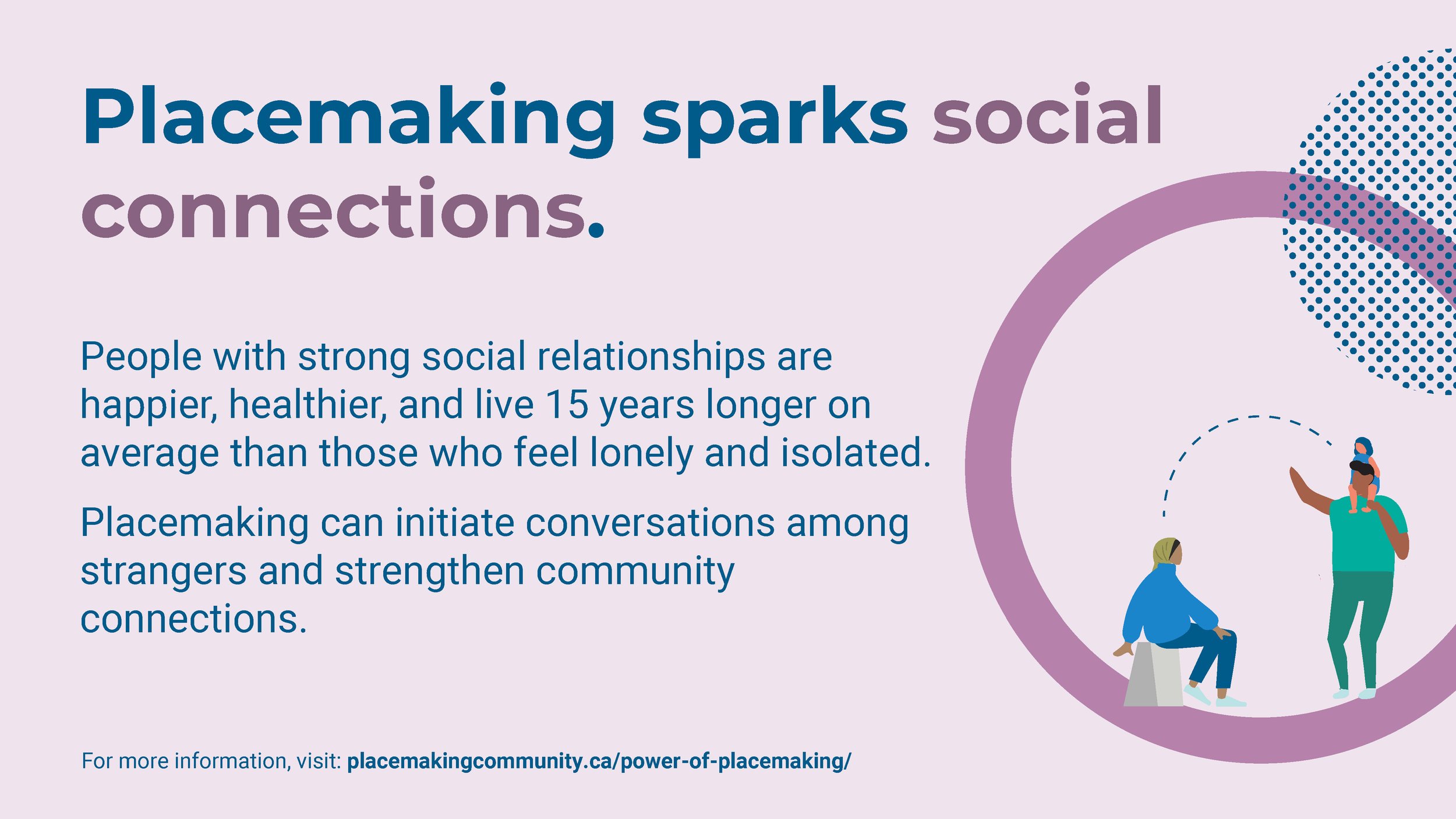
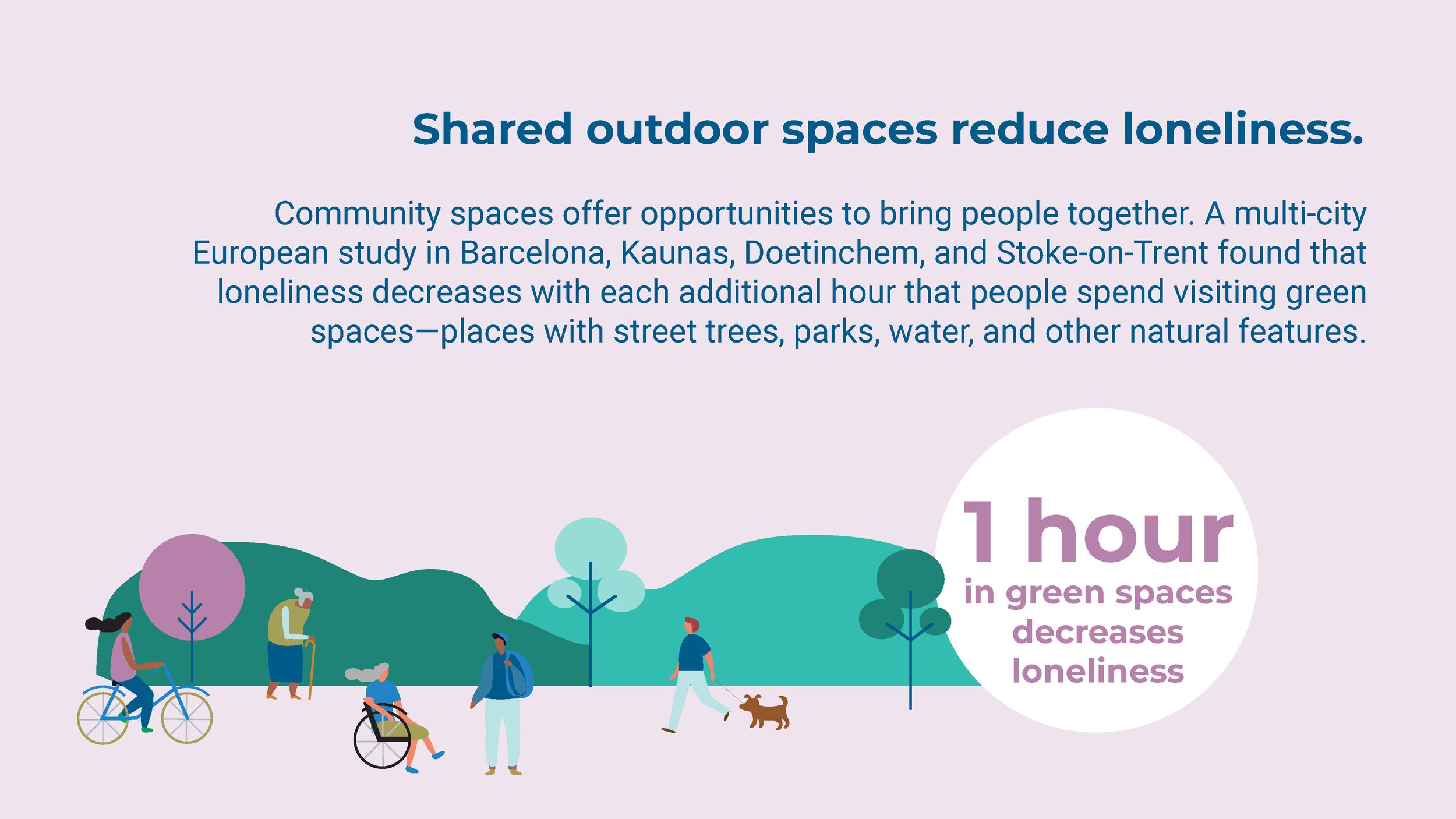
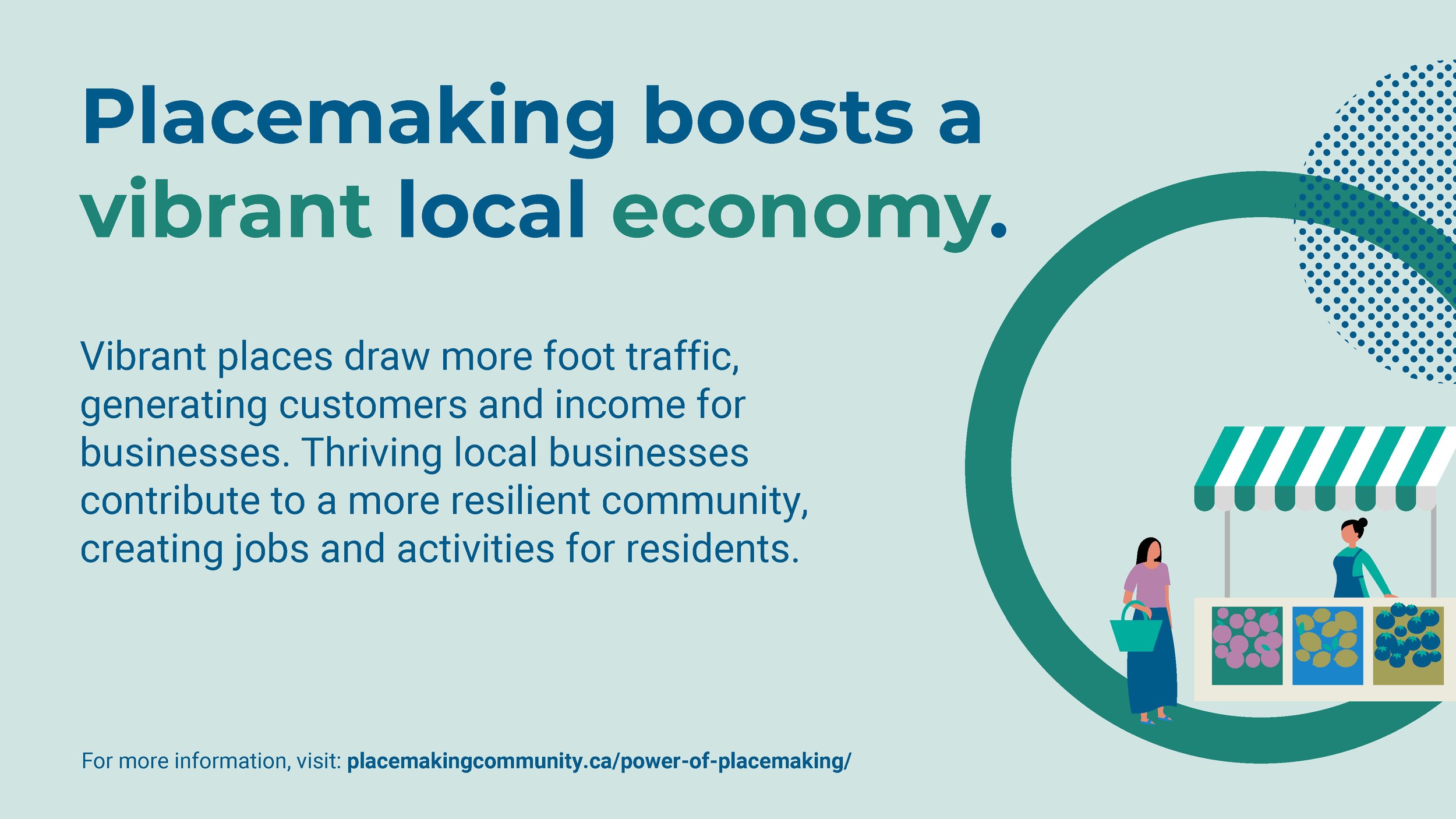
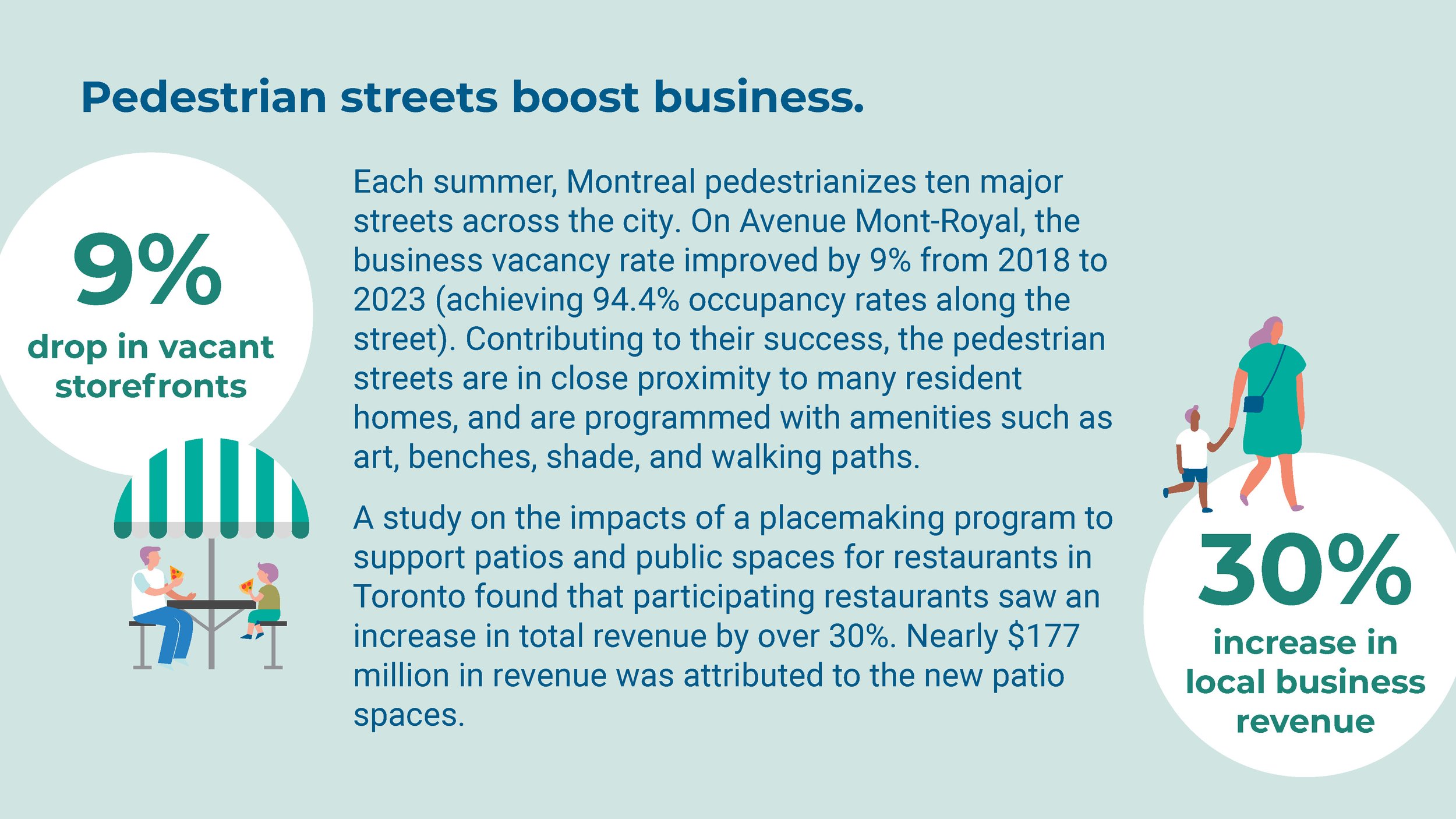
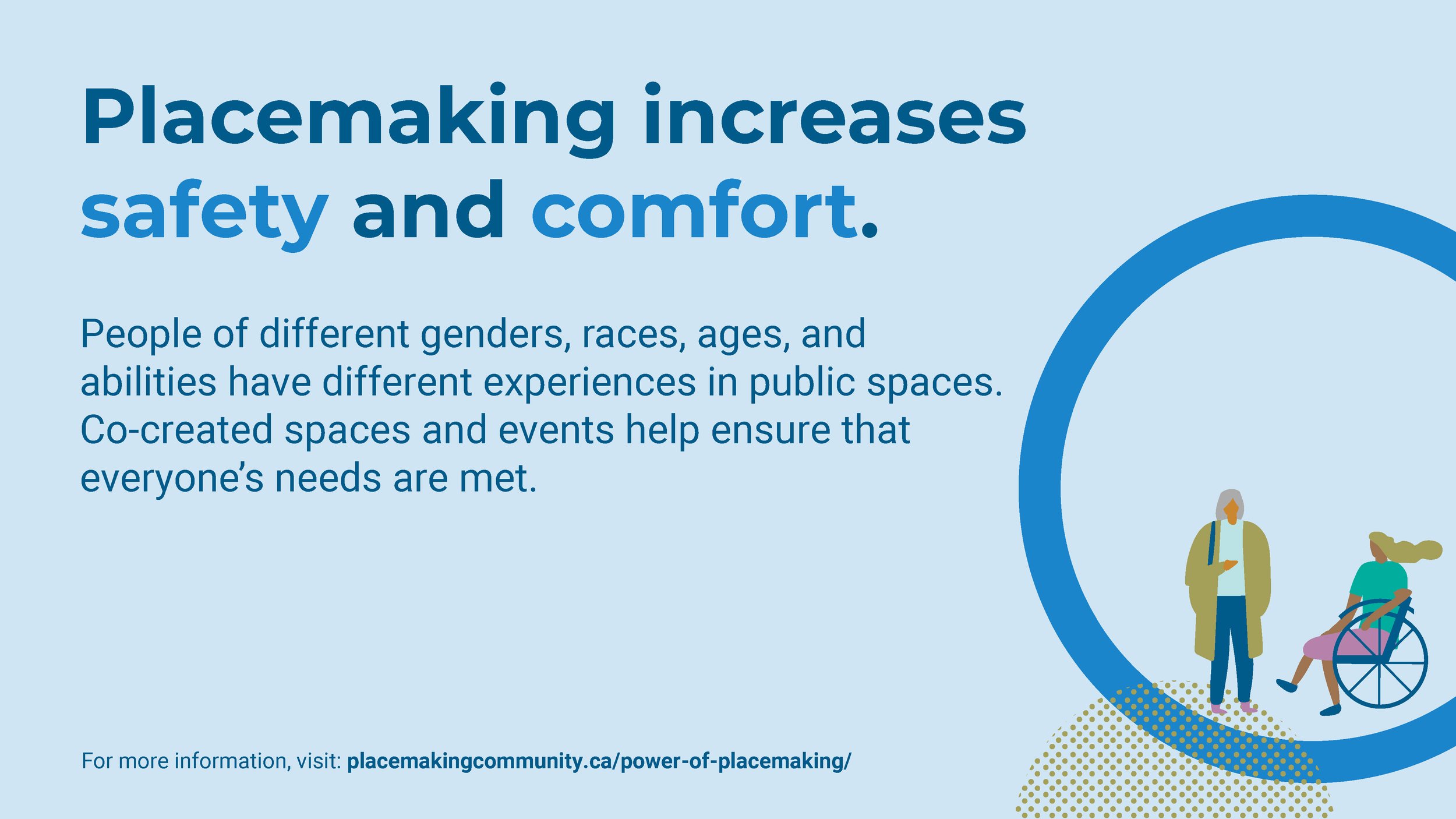
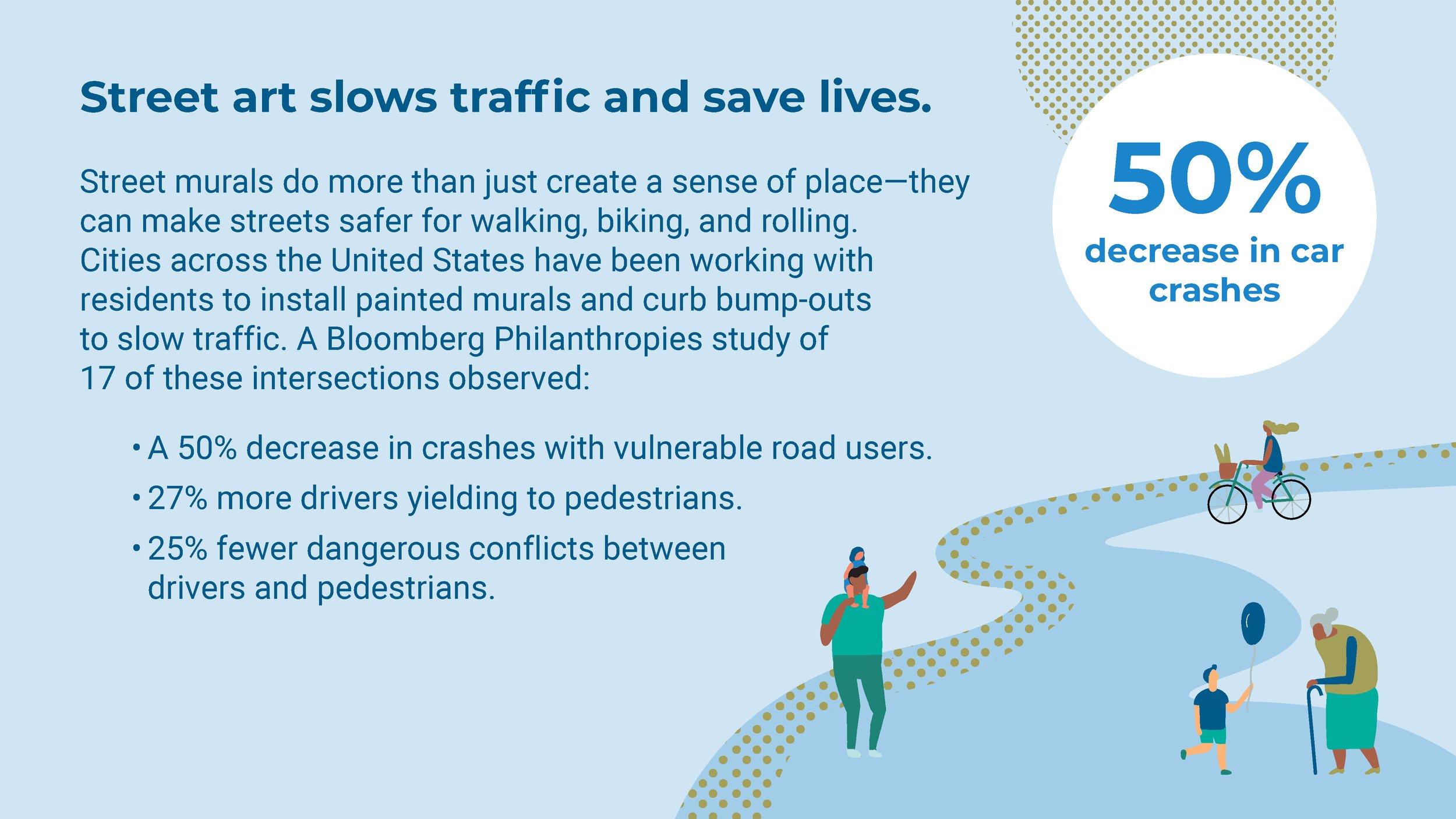
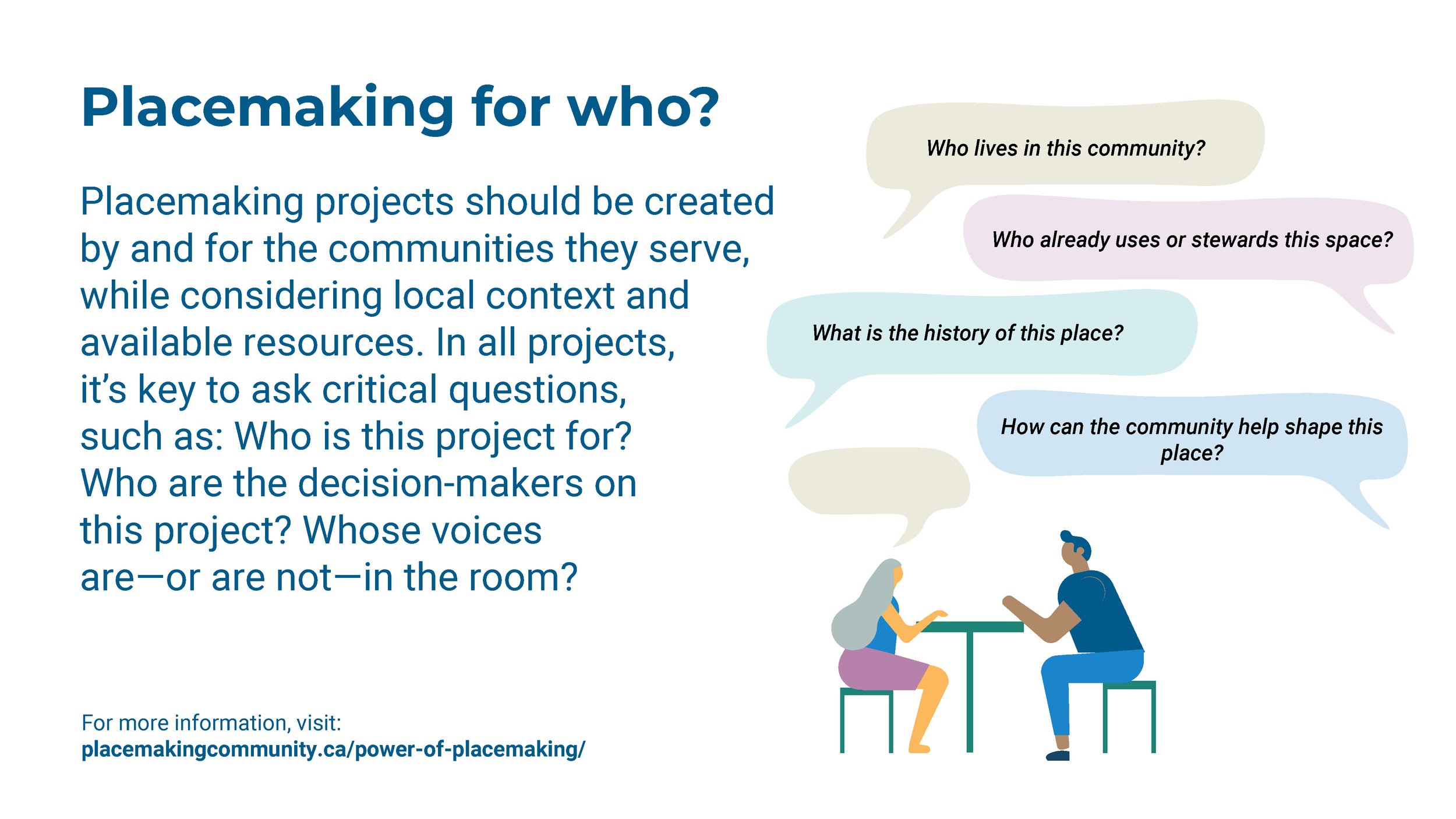
2. The Power of Placemaking Engagement Summary Report
This report shares the insights of over 100 placemakers who took part in eight discussion sessions during summer 2023. Participants included city staff, funders, community organizations and people of all ages, backgrounds, and abilities. It offers learnings around key opportunities and challenges for investing in placemaking across Canada.
3. Community conversations
In 2024, we continued our work with Canada’s Placemaking Community to write a series of articles exploring the experiences of placemakers across the country—and highlighting the wellbeing benefits, successes, and learnings of these community-based initiatives.
The articles drew from a series of eight community conversations, where we invited placemakers from across Canada to connect, share their experiences, and learn from one another about the power of placemaking. Together, we collectively imagined ways to deepen the impacts of place-based initiatives for communities coast to coast to coast.
Explore the stories below!
About Canada’s Placemaking Community
Canada’s Placemaking Community (formerly the Healthy Communities Initiative) is a $60-million investment from the Government of Canada to transform public spaces in response to COVID-19. Since 2020, the Initiative provided over 1,000 grants, ranging from $5,000 to $150,000, with 75 per cent of the funded projects carried out by registered non-profits. Further, it offers ongoing support to placemaking through its community of practice—Canada’s Placemaking Community. It is supported by the Canadian Urban Institute, Community Foundations of Canada, and other partners.










